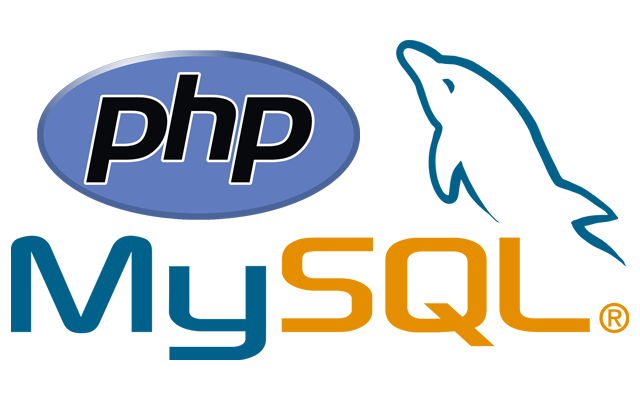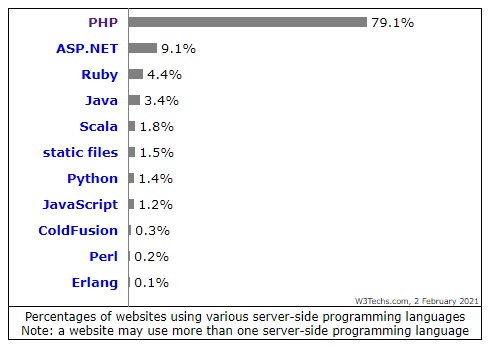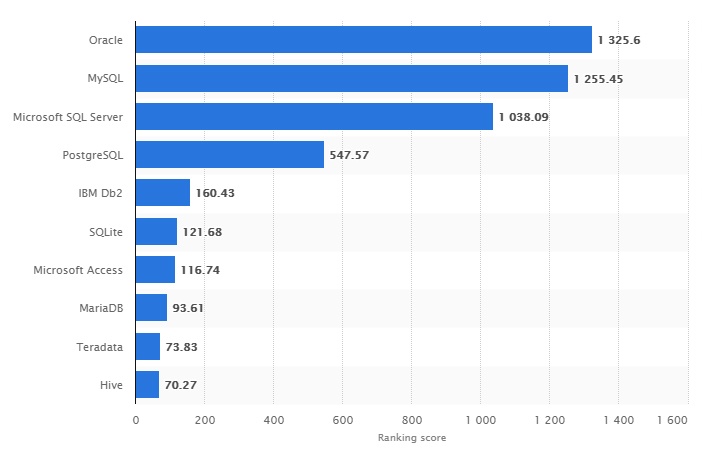Why PHP and MySQL are used together

The frequent use of PHP with MySQL to build websites has nothing to do with any kind of harmony or technical advantage of using the 2 technologies together. It is actually a result of each technology being the most popular alternative in its own field.
We will dive deeper into the reasons why using PHP and MySQL together is a very popular choice.
PHP is the most used server-side programming language
While PHP is NOT the most used programming language in general nor is it the most trending these days, it is in fact used by 79.1% of all the websites whose server-side programming languages are known.

This shouldn’t come as a surprise given the fact that it was released in 1995. Today, many of the big boys like Facebook, Wikipedia, and Slack reported using PHP for one or more of their services. PHP now has one of the biggest online communities ever. So it’s easy to find answers for almost any question as well as to seek help from over 6 million PHP developers worldwide.
What sets PHP apart from other backend programming languages?
- Easy to learn
PHP is a very simple language compared to some other alternatives. It doesn’t require any expertise or previous experience. In fact, most web developers started by learning PHP first before learning other programming languages. With a wide variety of courses and other resources available online, learning PHP is now easier than ever. - Excellent documentation
You can find the official documentation at php.net. It is very detailed and it goes thoroughly into every aspect of the language while giving clear examples. You can also find more documentation on W3Schools, Stackoverflow, and other sources. - Performance
There was a time when PHP started lagging behind other technologies in terms of performance. This changed in December of 2018 with the release of PHP 7. At the time of writing, PHP is one the fastest and most efficient backend languages you can use. - Compatibility with many databases
PHP comes with countless extensions. Many of which are database extensions that allow your PHP application to communicate with database engines. These databases include MySQL, PostgreSQL, SQLite, ElasticSearch, Redis, MongoDB, and others. - Ease of use with HTML
HTML is the markup language used to define the structure of your web page. With the majority of programming languages, you will have to separate your HTML files from your code files.
For example, if you are using Javascript to build your backend, you will have your backend code in .js files and you will need to use a separate templating engine like Pug to render the final HTML files. While with PHP, you are able to write HTML code directly into your .php files. This makes writing dynamic web pages super fast.
MySQL is the most used free relational database
While Oracle is the most used relational database, it is not free for commercial use. This is why MySQL has gained a large audience and is now the second database by popularity after Oracle.

It is super versatile and super capable which is why large companies like Uber, Airbnb, and Netflix have reported using MySQL in their applications.
What are the advantages of using MySQL over other databases?
- Very well documented
If there is one single technology that is the most documented on the web, it is certainly MySQL. You will find tutorials, examples, and courses for it everywhere. You will also find questions and answers for almost every possible use case. - It’s free and open-source
It is one of the oldest open-source projects. And being free and open-source, the future of MySQL looks promising since it is constantly being developed by the contributions of the community. - Scalability and High Availability
MySQL can be configured in many different ways to allow an application to scale well and to be highly available. This is why it is used by many of the tech giants.
WordPress uses PHP and MySQL together
The majority of websites on the internet are not built from scratch. Instead, they use a content management system like WordPress, which is the most popular CMS out there.
WordPress is an open-source CMS that is built using PHP and MySQL. Today, hundreds of millions of websites are using WordPress, which is one of the main reasons why PHP and MySQL are used together frequently.
Due to the mass adoption of WordPress, developers around the world are constantly building themes and plugins for the platform also using PHP and MySQL, which further increased the size of the ecosystem.
Most hosting plans come pre-installed with these 2 technologies
When buying a shared hosting plan from any hosting provider, they will give you access to a control panel where you can see and control the various software tools installed on the server.
Most if not all servers will come pre-installed with PHP. However, if your website is built in Python, Ruby, Swift, or any other programming language, you might need to contact your hosting provider first so that they can install the language interpreter for the server to run your website. In some cases, you won’t be able to get the language you need on a shared plan so you will have to upgrade to a VPS or a dedicated server where you can install the language interpreter yourself. With PHP on the other hand, you are almost guaranteed you can purchase any hosting plan on the planet and be ready to deploy your website.
The same goes for MySQL. Almost every shared hosting plan you can buy from any provider comes pre-installed with MySQL. If you need to use other database engines like PostgreSQL, Microsoft SQL Server, or MongoDB, a shared hosting plan probably won’t be a good fit for you.
Conclusion: Should you use PHP and MySQL together?
In most cases, the answer would be yes. Most people build websites to use them as personal blogs, business profiles, e-commerce websites, and other general use cases. PHP and MySQL are 2 very mature technologies that are proven to be able to handle most use cases just fine. And even with popular tech giants that have very specific use cases and need to handle a ton of traffic, these 2 technologies performed very well.
Better alternatives might exist in some use cases. 2 examples of such use cases are:
- If your application needs to run many processes asynchronously, you might be better off using a language like Javascript on top of Node.js. While PHP can handle asynchronous processes. It is not built specifically for that purpose.
- If your data model is not relational (meaning that it can not be easily represented in rows and columns), then you might be better off using a database like MongoDB. You can still use MySQL by normalizing your data to some extent so that it fits inside your database. However, there is a point where too much data normalization could cause real performance issues. In this case, NoSQL databases are a better choice.
So in conclusion, if you’re thinking about whether or not you should use PHP and MySQL to build your next project. Just go for it, there is a very minimal chance that you will regret your decision later on. However, if you have a very unusual use case, you might as well take the time to decide what technologies are better for the job.
